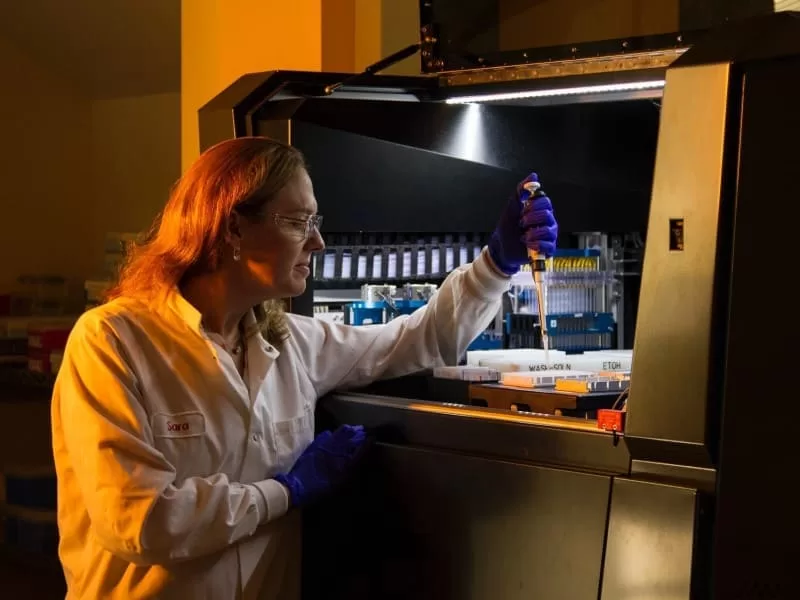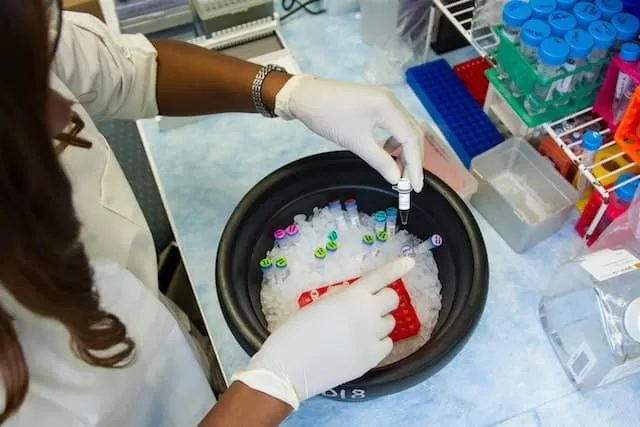
The importance of professional scientific translation
The importance of professional scientific translation in biotechnology
Correct translation is important when dealing with any topic, but even more so in biotechnology. Biotechnology is an interdisciplinary science that comprises the theoretical knowledge of biology, biochemistry, chemistry, and physics and applies it to living organisms, such as yeast or bacteria, or even parts of living organisms like cells, tissues, and organs, to produce and formulate novel therapeutics, antibiotics, treatments, and other products for human use and medicine.
Challenges of scientific translation: beyond the vocabulary
Professional scientific language can differ substantially from everyday conversation, either by having more specific terminology or being heavily reliant on the context. Therefore, it requires the knowledge and expertise of professional translators who not only possess the proper vocabulary, but who also understand the general topics and problems in texts they are translating.
There are several problems and issues that can occur when translating scientific articles, such as not knowing the terminology or words in both languages, not knowing the correct verb tenses that should be used or having a lack of preciseness that scientific texts require more than any other texts of other disciplines.
Professional scientific translations of biotechnology
Specifics and mistakes: terminology of translation in biotechnology
One of the main problems in scientific translation in biotechnology is not knowing the terminology, which can take years to learn. It is even harder to learn the names of the objects or methods used for experiments or laboratory tests if the translator has never seen them or does not know in which exact way they are used. For example, mortar and pestle are commonly used in a kitchen to grind spices and make sauces, but in a laboratory, they can be used to grind drugs into fine powders or even to break open bacterial cells.
Another example would be a centrifuge, a device that is used in biotechnology as a very common tool to collect heavier or denser particles in solutions, while the general audience would probably first think of a centrifuge in a washing machine. Depending on the language those terms will be translated into, it can be a common mistake to translate them into the common names for kitchen tools, rather than the specialized biotechnological ones.
This is especially important if professional translating services are required to translate articles and papers to be published in peer-reviewed scientific journals, textbooks, laboratory protocols, device manuals, documents, or specific instructions; thus, it is of the utmost importance to know and correctly use proper scientific terminology.

Photo by National Cancer Institute on Unsplash
The importance of preciseness in scientific citations
Scientific texts, particularly published scientific articles, will often get cited as sources of information in texts by other scientific authors. This is also a frequent practice in biotechnology, where papers with described experimental methods are mainly published. In that case, there may be an unnoticed erroneously translated biotechnological term or phrase, that error might be perpetuated through further literature via citations by other authors, more times than anyone could imagine. Therefore, it is vitally important to choose professional translators who are aware of the importance of correct translations and terminology, not only for the client but for the generations to come.
Biotechnological terms for wider audiences
Another frequent problem that the scientific translator can face is when the targeted audience is not specifically trained in biotechnology. The goal is then to translate and adapt the text so virtually everybody can understand the ideas and conclusions it explains but in colloquial language. A specialized biotechnological translator will know how to read the scientific text with enough understanding to translate it into words that everybody can understand even without specific training in biotechnology.
An example would be explaining to the general audience the creation of genetically modified organisms without using the terms such as “translation.” “double alleles”, “homological recombination of deoxyribonucleic acid” and similar terms but retaining the exact idea without misleading the audience by incorrectly explaining the information.
Navigating through biotechnical terminology in different languages
English is the most used language in biotechnology, and in general, much terminology is not even translated to other languages. Therefore, many words in biotechnology are just widely known in English and it can be a problem in other languages that have different and much more complicated grammar. A professional and trained biotechnology translator will know how to properly decline and conjugate different nouns and verbs that come directly from English.
Furthermore, some languages will pride themselves in actually having a term for every scientific English term, which a lot of translators who are not trained in biotechnology will not even know how to translate. Along those same lines, but coming from the opposite perspective, some languages might be proud of the fact that they do have their own scientific terminology for specialized scientific terms. In those cases, the use of English or foreign terminology might be frowned upon in academia or other higher scientific institutions, especially when writing textbooks, manuals, and professional documentation issued by the government.
Finally, a professional scientific translator always proofreads all of the translated materials several times before submitting them. He knows that having even a minor mistake at a seemingly unimportant place in the text might completely change the meaning of instructions or conclusion and cause further problems in the future.
Do you need to translate a scientific article in Barcelona?
Do you need a translator for your scientific article translation in Barcelona? Are you looking for a technical translator specialized in your field? Contact us through the following questionnaire and we will send you your budget for the professional translation, as soon as possible, without compromise.


No Comments